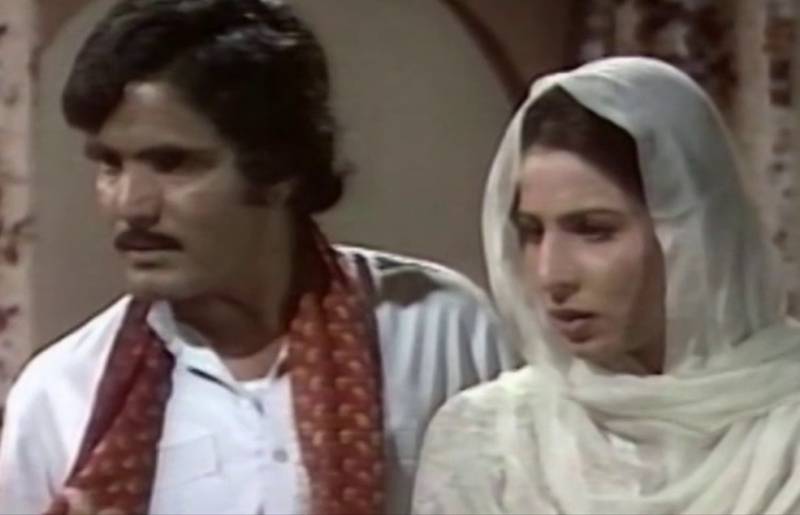Munir Qureshi, also known as Munnu Bhai, who left this world on January 19, 2018, was an important figure of Urdu Literature.
Despite his popularity as a journalist and a column writer, my liking for him was the result of his classical TV serial, Sona Chandi, a thirty-two episoder aired on Pakistan Television in the 1980s. While this serial was just a comic piece for me as a child, it opened up a lot of avenues when I watched it again thoroughly a few days before Munnu Bhai’s demise.
Sona and Chandi, a husband and a wife, are two simple and innocent characters, marvellously played by Hamid Rana and Sheeba Hassan, who come to Lahore from their village in order to work so that they can relieve themselves of a burden of debt they are under.

With no biasness towards a specific gender, Munir Qureshi’s creation of this couple is an ideal example of two life partners, together in every step, facing every difficulty and celebrating every relief together, trusting each other in every matter and respecting each other’s opinion no matter what happens. These husband and wife, who sing songs to each other and confide in no one else but share secrets, come across a large number of people with varying personalities while they move from one house to another to find a reasonable job.
A serial that stretches over thirty two episodes and introduces a new character in each episode is a fine exhibition of the writer’s large canvas of life, full of colours of different human beings, each having a unique way of living.
Sona and Chandi, in search of work, meet many families, at times comprising of stubborn parents and loving children, and at times, comprising of doting parents and ignorant children. They come across proud landlords without whose permission they cannot move, as well as humble landladies with whom they have dinner on the dining table. They meet active doctors and negligent doctors, loving couples and couples who cheat on each other, writers, actors, thieves, spoilt kids and well-mannered kids. However, Sona and Chandi, with their innocence and love, melt every character, create friendships between parents and children, build trust between husbands and wives, turn spoilt brats into reasonable children, expose lies and bring truths to the front, consequently establishing their importance in every house they visit.
While the serial is about two innocent people experiencing new and strange happenings and devising ways to deal with them, it gives a rich view of life too. It exposes the viewers to a huge variety of human beings existing in the world, each having his or her own perspective of life.
Ending on a serious note regarding how people spend their entire lives away from home for financial stability while Sona and Chandi succeed in paying off their debt, Sona Chandi establishes itself as a masterpiece, reflecting the writer’s strong grip on both the serious and comic genres, with an ability to subtly depict various aspects of life under the veil of humour.
A decent drama with an interesting story, exposing us to every accent of Urdu language spoken around us, from refined to the ones that need filtration, it makes me recall a statement of Munnu Bhai from a literary festival I attended at Alhamra, which was something like the audience being the children of writers, and the writers’ responsibility being to acquaint the audience with what they would want their own children to know.
While the demise of this socially concerned man has saddened us, it has rendered Sona and Chandi two eternal characters, which will continue to delight us because I firmly believe that for the commemoration of Munnu Bhai, this classical piece of dramatic work will be revisited.






